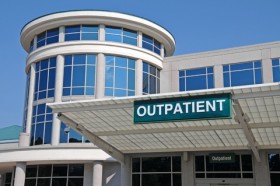Source: NJ Department of Health and Senior Services (NJ DHSS)
 What are Ambulatory Surgery Centers?
What are Ambulatory Surgery Centers?
Ambulatory Surgery Centers or “Same Day Surgery Centers” are facilities where patients can undergo certain types of surgery or medical procedures, recover and go home the same day. Eye, knee and shoulder surgery, cosmetic surgery, and procedures such as colonoscopy screening for colon cancer are examples of services these centers provide.
How many Ambulatory Surgery Centers are there in New Jersey?
There are 133 DHSS-licensed centers in the state. Another 116, though not DHSS-licensed, are certified by the federal Centers for Medicare and Medicaid Services as meeting CMS standards of care. Many other centers come under the authority of the New Jersey state Board of Medical Examiners, which regulates private physician practice.
Patient Safety in New Jersey
DHSS inspects licensed ambulatory surgery centers every three years. Hospitals and ambulatory surgery centers must report to New Jersey’s confidential Patient Safety Reporting System when a serious preventable adverse event occurs. Facilities must conduct a root cause analysis to find the underlying causes of the medical error, and develop and implement a plan to prevent future errors. DHSS, working in conjunction with the Centers for Medicare and Medicaid Services, temporarily curtailed admissions at some ambulatory surgery centers for deficiencies in meeting standards related to infection control, safety, sanitation, medication control, patient safety and other issues. Each of these centers was allowed to reopen after correcting the problems identified.
To learn more, visit the NJ DHSS Patient Safety web site. The Annual Reports contain data on errors and their underlying causes, and track statewide trends in the effort to improve patient safety. By way of example, from the 2009 survey the following issues continue to be problematic:
Falls (preventable) are the largest recurring category of issues in NJ Hospitals and Same Day Surgery Centers
Pressure Ulcers and “Care Management Other” continue to be the next largest subcategories
There has been an increase in the number of reportable device malfunctions, wrong patient/wrong site/wrong procedure events and suicide/attempted suicide in 2009.
The number of retained foreigh objects (RFOs) (things left inside of patients during surgery) remained roughly constant from 2008 to 2009, 27 to 25 RFOs.
If you or a loved one were injured at a New Jersey Hospital or Same Day Surgery Center contact the Lewis Law Firm for a free consultation and opinion. The Lewis Law Firm is committed to improving the quality of medical and hospital care for New Jersey residents.
Posted by: Gayle R. Lewis, Esquire
